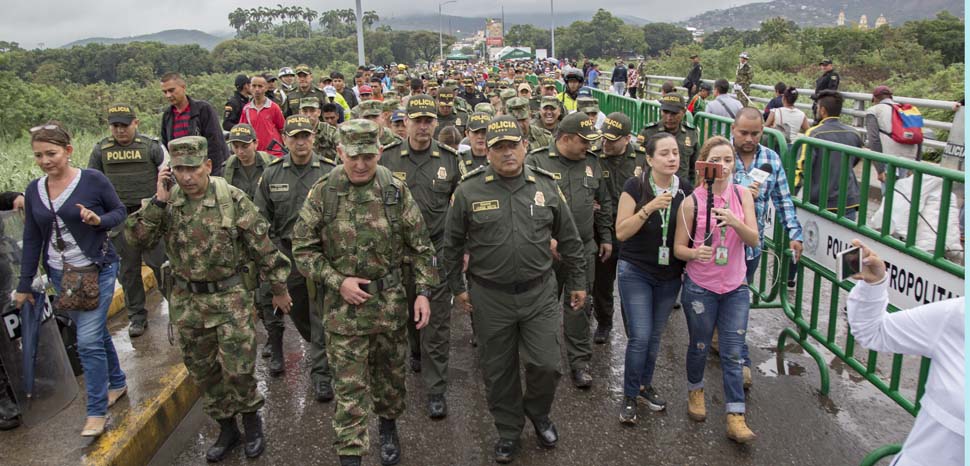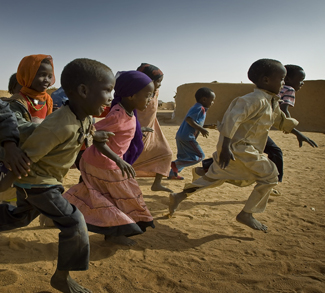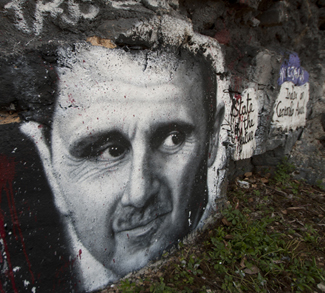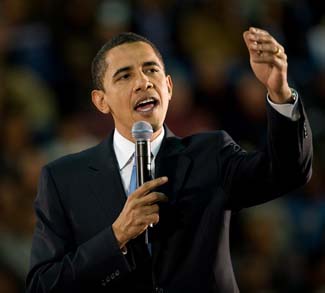They arrive by plane, on foot, or by dinghy. Unable to access food, medicine, or other basic services at home, Venezuelans are streaming out of their country at an alarming rate. According to some estimates, around 5,000 Venezuelans flee across the border every day, adding to the 1.6 million already living abroad. With conservative estimates putting the number of Venezuelans likely to leave in 2018 around 1.7 million, the Venezuelan exodus will soon rival the Syrian refugee crisis.
However, even as the number of Venezuelans leaving home continues to grow, the international community is still speaking in euphemisms, referring to the exodus as “the Venezuelan situation.” But language matters. Leaders in the region and the international community need to formally call the exodus what it really is—a refugee crisis—and invoke the Cartagena Declaration in order to provide Venezuelans stranded abroad with the legal protections and funding they require.
The distinction between migrants and refugees may not be obvious, but it is consequential. Receiving countries often implement programs to help accommodate migrants, but they are not legally bound to do so. In contrast, the designation of refugee status confers the right to refuge, work, and travel abroad for individuals, and compels nearby states to provide such protections under international law.
Technically, the situation inside Venezuela does not fit the standard criteria for the declaration a refugee situation. Under general United Nations conventions, refugees are forced to flee their country due to fear of persecution—typically political, racial, or religious. Some Venezuelans fit this description, like members of the political opposition. Most Venezuelans, however, are leaving to escape a man-made disaster, as economic mismanagement, combined with political repression, has plunged the country into a humanitarian crisis. One fifth of Venezuelan children are malnourished. The vast majority of the country’s hospitals have run out of medicines. Caracas, its capital city, is one of the world’s most dangerous cities.
Although Venezuelans may not fit the standard UN definition of refugees, their choice to leave cannot be considered an active decision when they are faced with starvation and violence. This is a distinction that makes them refugees in Latin America. The Cartagena Declaration on Refugees, a regional agreement signed by 14 Latin American countries, expands the UN definition of refugees to protect those fleeing situations of extreme poverty and generalized violence, like that besieging Venezuela. The United Nations Refugee Agency (UNHCR), in fact, called on Latin American leaders to invoke the Cartagena Declaration in a report released in March. Nonetheless, the refugee crisis remains, formally in international statements, “the Venezuelan Situation.”
Fortunately, Latin America’s history of intra-region migration has created a strong precedent of legal protections for migrants. So far, Latin American governments have done an admirable job accommodating Venezuelans. But host countries are reaching a breaking point. The arrival of more than half a million Venezuelans in Colombia, for example, threatens to destabilize a country struggling to overcome its decades-long armed conflict. Stricter border measures, introduced in Colombia in March 2018, have made it harder for Venezuelans to attain legal recognition in Colombia. Meanwhile, a backlog of asylum applications across the region, combined with a substantial number of migrants who have avoided official crossings, has left a worrying proportion of Venezuelans abroad in irregular status.
A region-wide invocation of the Cartagena Declaration would provide a framework to address the crisis. While the Cartagena Declaration is not legally binding, the recognition of Venezuelans as refugees applies political pressure on regional governments to implement protections and accelerated asylum processes for Venezuelans. Furthermore, working with a common understanding of Venezuelans as refugees, regional groups that are concerned with the situation inside Venezuela, like the Lima Group, could work together to coordinate a burden-sharing agreement. With Spanish as a common language across Latin America, it is feasible that countries could coordinate to resettle Venezuelans across the continent and avoid forcing any single country to bear the brunt of the refugee crisis.
Officially invoking the Cartagena Declaration is crucial for one other reason: money. Compare, for example, the amount of funding devoted to Venezuelans and Syrians. The UNHCR put out a request for $46 million to provide humanitarian assistance and coordinate a response to the Venezuelan crisis. This amount is less than a tenth of what the UNHCR asked for to aid Syrian refugees and host countries, and is barely a drop in the bucket compared to the $4.8 to $8.9 billion that Brookings has calculated will be needed to resettle and provide aid for 1.7 million Venezuelans.
While declaring a Venezuelan refugee crisis would help bring international assistance to the region, domestic politics make it unlikely that Venezuela’s neighbors will take the lead. Both Colombia and Brazil will hold presidential elections this year, and their electorates remain concerned primarily with domestic issues, like corruption and social services. Neither country, therefore, is eager to increase responsibilities toward Venezuelans by invoking the Cartagena Declaration.
Some experts have argued that the United States should defer to Latin American leadership on the Venezuelan crisis, but the refugee crisis offers an opportunity for the United States to lead from behind. President Trump’s administration has already demonstrated its commitment to helping Venezuelan refugees as a complement to its policy of promoting regime change within Venezuela. In March, US officials announced that the government would provide $2.5 million in food and humanitarian aid to Venezuelans in Colombia. At the 2018 Summit of the Americas, Vice President Michael Pence committed another $16 million to Colombia and Brazil. The United States could use this aid as leverage to encourage Latin American leaders to formally recognize the Venezuelan situation for what it is—a refugee crisis.
The opinions, beliefs, and viewpoints expressed by the authors are theirs alone and don’t reflect any official position of Geopoliticalmonitor.com.




